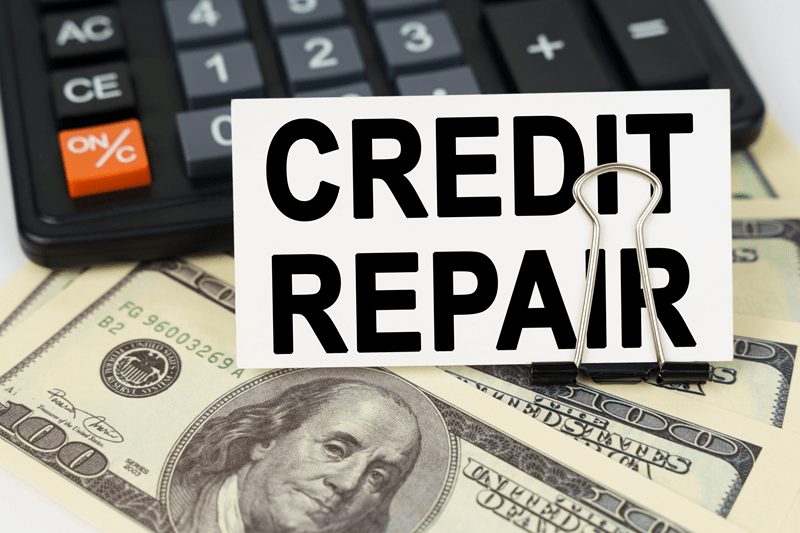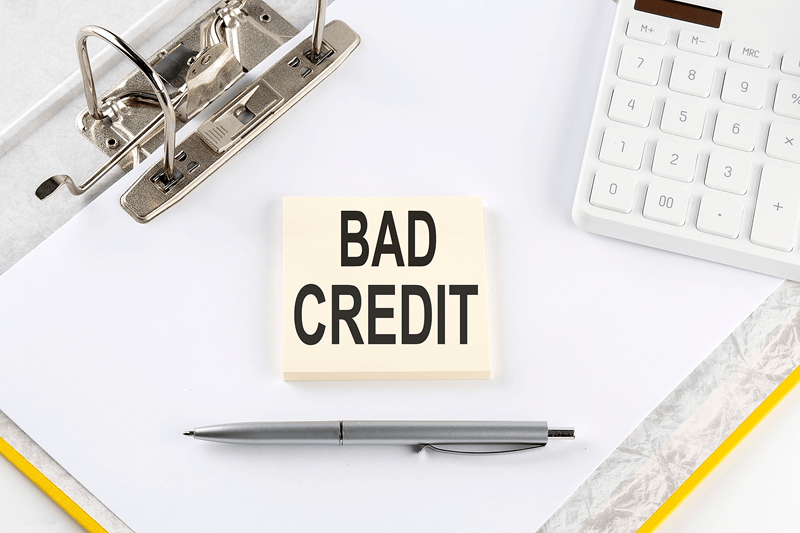
Rebuilding your credit can be a slow process, but it is achievable. Regardless of the situation, which may be late payments, overwhelming debt, or even collections, you will be able to change your circumstances by doing steady work and having smart financial habits. Recovering from bad credit is a process of regaining trust, developing better money management skills, and creating positive financial habits that are sustainable.
Such a process requires some crucial steps; therefore, this blog will take the steps one by one and see how to rebuild financial health.
Bad credit is most likely a result of missed payments, too much debt, or loan default. Your credit score is a summary of your payment history, debts, and credit usage. A low score means lenders will consider you as a risky borrower, thus they are reluctant to give you loans, credit cards, or even renting a house may be difficult for you.
Regardless however, bad credit cannot be considered as a permanent situation. To a large extent, credit scores are designed to be flexible and respond to a limited number of recent events. Constantly were you to take the right steps, your credit rating could in due time evolve from poor further to fair and then eventually to good credit.
Here’s your step-by-step guide to bad credit recovery:
Diagnosing your bad credit situation starts with a look at your credit report. Requesting a copy of your credit report from any major credit bureaus is possible without cost once per year.
Check for any mistakes, such as wrongly recorded late payments, accounts that have been closed for a long time, or loans that you don't recognize. These errors may be hurting your credit score without you knowing. One of the quickest ways to raise credit scores after having debt is by improving credit after debt.
The next step in managing poor credit history is taking the reins of your personal finances. A proper budget allows you to control the money you bring in and limit the expenses of the month while still ensuring that money will be set aside for the payment of the bills.
Start with writing down your income and regular expenses. To help you figure out where you can save, you might look at areas such as eating out or subscription services and then, use the savings to pay your debts. Remember, it is also good to make a small emergency fund to be prepared with occasions when you cannot pay because of surprises in expenses.
Your payment history constitutes the largest part of your credit score. Timely payments, i.e., payments made on time month after month, are very important for someone trying to get out of a bad credit situation. The late payments could be stored in your report for a very long time, therefore, do not fail to be regular.
If you are willing to keep everything together, you can also make use of the automatic payments option or handy phone reminders to help you remember going about your work. Whilst a full payment may not always be possible, at least try to pay the minimum that is due.
High balances may have a negative impact on your credit score since they elevate your credit utilization ratio which is the proportion of credit being used out of the total credit available. The ideal situation would be one in which this ratio is lower than 30%.
In the case when you have high balances, take measures to bring them down step by step. The first step will be, if at all possible, to do more than the minimum payment that is required and at the same time not to use your credit cards for buying new stuff until that balance is lower.

Secured cards are the best option for you if it is always hard for you to get approval from the traditional credit providers. A secured card is a tool that can help you with a bad credit recovery while you limit your risk.
Put a refundable deposit, which will be your credit limit. Make use of the card for small purchases and settle the balance if it is in full each month. Responsible use over time will show lenders that you are creditworthy. After a few months, you may be eligible for an unsecured card, thus, credit recovery after debt will have been your steady progress.
Your instinct might be to close old accounts once you have paid them off, but that is actually reducing your credit history and may lower your score. Older accounts should be kept open, and you can use them now and then for small purchases that you can pay off quickly.
The longer you live with an account, the stronger your credit history gets. This is a very simple method of handling credit that is bad and at the same time building long-term trust with lenders.
If you plan to apply for a few credit cards or loans simultaneously within a few days may lead to your score dropping for a short time. In a single application, a “hard inquiry” is triggered, and too many inquiries cause lenders to be reluctant.
When you are figuring out how to recover from bad credit, limit new credit application to only when it is inevitable. Instead of searching for new lines of credit, be responsible with the current accounts.
A credit-builder loan is a small loan that is targeted at credit rebuilding only. The lender deposits the loan amount in a savings account until you finish making your payments. When the term is completed, the money will be given to you, and your record of on-time payments will be reported to the credit bureaus.
This method is in line with how to get back financially, as it shows the combination of saving and consistent repayment, which is what most lenders need to see in order to grant you credit.
Assessing your credit score every couple of months will let you know if you are on the right track. A lot of banks, credit unions, and online tools offer free credit monitoring services. It helps you to be on your toes, and throughout this gap of time, the fixing issue will keep you going and motivated.
Additionally, keeping a record of the progress you have made serves as a confirmation that your bad credit recovery efforts are fruitful. Eventually, you will see constant improvement as your good habits will have taken over the bad ones.
No matter what, credit rebuilding is a gradual process, and it will not be done in a short span of time. By being consistent in paying bills on time, controlling debt, and managing credit, you will gradually rebuild your reputation.
Creditors are looking for evidence that you have learned from past mistakes, grown up, and now use your money wisely.
Recovering from bad credit takes time, discipline, and smart choices, but every effort you muster makes a difference. These credit rebuilding tips are not only occupational, but the fact is, you are reclaiming your financial life and proving that you can sustain this success for the long haul.
If time, patience, persistence, and the realization of your evident success keep you on track, your credit score and your confidence will only improve over time.
This content was created by AI